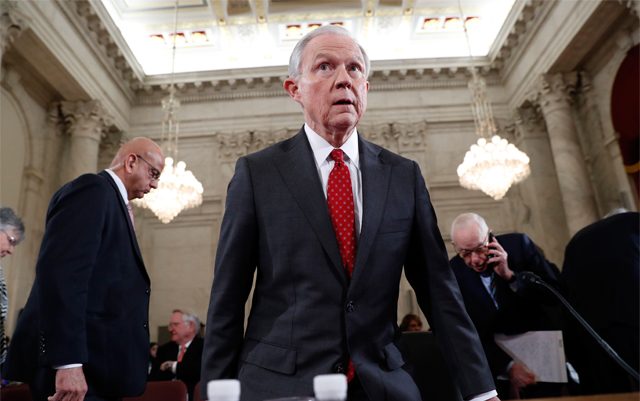Earlier this month U.S. Attorney General Jeff Sessions rescinded Department of Justice guidelines that had been put in place during President Obama’s second term, guidelines that allowed marijuana legalization to operate basically unmolested by federal authorities in states where voters had approved it. This move by Sessions opened the door for each U.S. Attorney to use their own discretion when determining which marijuana cases to prosecute since all activity pertaining to cannabis is illegal under federal law.
This means the eyes of the cannabis community have moved to individual U.S. Attorneys and what their plans are, especially in states with new adult use marijuana industries. For the most part, U.S. Attorneys have expressed a business-as-usual approach, not worrying about legal marijuana businesses but continuing to focus on illegal traffickers and those who use violence to achieve their ends.
“…we have investigated and prosecuted over many years cases involving organized crime, violent and gun threats, and financial crimes related to marijuana,” read part of a statement from United States Attorney for the Western District of Washington Annette L. Hayes. “We will continue to do so to ensure – consistent with the most recent guidance from the Department – that our enforcement efforts with our federal, state, local and tribal partners focus on those who pose the greatest safety risk to the people and communities we serve.”
U.S. Attorney Andrew Lelling (the top federal prosecutor in Massachusetts) said in a statement that he ‘‘cannot provide assurances that certain categories of participants in the state-level marijuana trade will be immune from federal prosecution.’’ He said this after acknowledging that those in the industry were looking for some concrete guidance on the issue.
And while U.S. Attorney Bob Troyer in Colorado said there would be no changes in how marijuana laws were enforced there, some U.S. Attorneys were a little more menacing in their language when it came to possible enforcement.
Billy J. Williams, the United States Attorney for the District of Oregon, wrote in an op-ed article: “I have significant concerns about the state’s current regulatory framework and the resources allocated to policing marijuana in Oregon.”
Writing that Oregon had a massive marijuana overproduction problem and that “a survey of recent federal cases in Oregon illustrates alarming trends,” Williams continued by claiming that “we also know that even recreational marijuana permitted under state law carries ill-effects on public health and safety, as Colorado’s experience shows,” citing stats about increased “marijuana-related emergency and hospital admissions.” This is a subject I have addressed on this site before.
U.S. Rep. Earl Blumenauer fired back at Williams, taking issue with his characterization of how the U.S. Congress views the issue of cannabis. “No one has talked to more members of Congress than I have on the issue of cannabis,” Blumenauer wrote. “Overwhelmingly, my colleagues on both sides of the aisle agree that marijuana should not be classified as a Schedule I drug. No one believes it’s more dangerous than methamphetamine or cocaine. And they’ve heard from millions of their own constituents of the therapeutic value of cannabis for treating conditions like chronic pain or seizures. In fact, many of my colleagues think marijuana has no place on the list of controlled substances at all.”
Much remains to be seen as to what various U.S. Attorneys will do, but if those in Congress really feel that cannabis should be de-scheduled, then they should get on making that happen asap.






